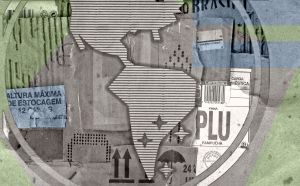Public Finance Review’s Special Issue: Analyzing the Redistributive Impact of Taxes and Transfers in Latin America
 While Latin America is taking in more tax revenue cumulatively than it did twenty years ago, the International Business Times reported in 2012 that the income gap between the wealthy and the poor is still drastically wide, with the richest 20 percent making 20 times more than the poorest 20 percent. So what’s changed in the recent past? What can be done in the future? Public Finance Review recently published a special issue titled Analyzing the Redistributive Impact of Taxes and Transfers in Latin America that looks at various aspects of these ideas and is available to read for free for the next 30 days!
While Latin America is taking in more tax revenue cumulatively than it did twenty years ago, the International Business Times reported in 2012 that the income gap between the wealthy and the poor is still drastically wide, with the richest 20 percent making 20 times more than the poorest 20 percent. So what’s changed in the recent past? What can be done in the future? Public Finance Review recently published a special issue titled Analyzing the Redistributive Impact of Taxes and Transfers in Latin America that looks at various aspects of these ideas and is available to read for free for the next 30 days!
Nora Lustig, Carola Pessino, and John Scott collaborated on the introductory article “The Impact of Taxes and Social Spending on Inequality and Poverty in Argentina, Bolivia, Brazil, Mexico, Peru, and Uruguay: Introduction to the Special Issue.”
The abstract:
How much redistribution and poverty reduction is being accomplished in Latin America through social spending, subsidies, and taxes? Standard fiscal incidence analyses applied to
Argentina, Bolivia, Brazil, Mexico, Peru, and Uruguay using a comparable methodology yields the following results. Direct taxes and cash transfers reduce inequality and poverty by nontrivial amounts in Argentina, Brazil, and Uruguay but less so in Bolivia, Mexico, and Peru. While direct taxes are progressive, the redistributive impact is small because direct taxes as a share of GDP are generally low. Cash transfers are quite progressive in absolute terms, except in Bolivia where programs are not targeted to the poor. In Bolivia and Brazil, indirect taxes more than offset the poverty-reducing impact of cash transfers. When one includes the in-kind transfers in education and health, valued at government costs, they reduce inequality in all countries by considerably more than cash transfers, reflecting their relative size.
Click here to read “The Impact of Taxes and Social Spending on Inequality and Poverty in Argentina, Bolivia, Brazil, Mexico, Peru, and Uruguay: Introduction to the Special Issue” and here for the table of contents to of Public Finance Review’s Special Issue: Analyzing the Redistributive Impact of Taxes and Transfers in Latin America. Make sure to sign up for e-alerts from Public Finance Review by clicking here!



























































































